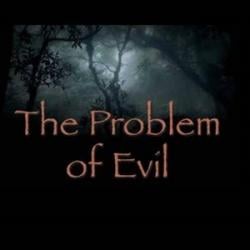No two things could seem further apart than Lent and the Zombie Apocalypse.
Lent focuses us on penitence and self-reflection, preparing us for Holy Week and Easter.
Zombie tales focus on fast-escaping survivors who don't have time to remember their own names, much less think about the state of their souls.
These meet, however, in The Reapers Are the Angels by Alden Bell—a tale of wonder, reflection, and zombies.
Apocalyptic literature has a long history reaching back to Jewish and Christian authors' prophetic visions of the end times. More recently, "end times" have become the province of science fiction writers interested in exploring the dark side of modernity. Nuclear war, pandemics, techno-failure, alien invasion, and global natural disasters have all been fodder for gripping storytelling that also examines larger issues of society, human nature, and even battles between good and evil.
A twist on the apocalyptic story evolved further with George Romero's zombie movie, Night of the Living Dead, in 1968. The zombie trend continued to develop almost exclusively in film. Most recently works such as 28 Days Later featured terrifyingly fast zombies, Shaun of the Dead set a romantic comedy amid a zombie apocalypse, and Zombieland followed a group of four survivors struggling to get to an amusement park and developing into a family unit during the journey.
A more recent development has taken zombies from films into books as the subject of apocalyptic literature. Max Brook's The Zombie Survival Guide explained how to survive a zombie apocalypse. He followed this with World War Z: An Oral History of the Zombie War, which detailed a zombie pandemic battled by humans. Pride and Prejudice and Zombies garnered much greater public attention as a mash-up of Jane Austen's public domain Pride and Prejudice with zombies.
It is rare, however, to find a book about the zombie apocalypse that addresses the larger themes that one finds in science fiction apocalyptic literature. The Reapers Are the Angels is just such a rarity. Author Alden Bell looks beyond the popular appeal of zombies to the depths of the human soul. This is obvious from the very first paragraphs.
God is a slick god. Temple knows. She knows because of all the crackerjack miracles still to be seen on this ruined globe.
Like those fish all disco-lit in the shallows. That was something, a marvel with no compare that she's been witness to. It was deep night when she saw it but the moon was so bright . . . it was almost brighter than daytime . . . a school of tiny fish, all darting around like marbles in a chalk circle, and they were lit up electric, mostly silver but some gold and pink too. They came and danced around her ankles, and she could feel their little electric fish bodies, and it was like she was standing under the moon and in the moon at the same time. And that was something she hadn't seen before. A decade and a half, thereabouts, roaming the planet earth, and she's never seen that before.
And you could say the world has gone to black damnation, and you could say the children of Cain are holding sway over the good and the righteous—but here's what Temple knows: She knows that whatever hell the world went to, and whatever evil she's perpetrated her own self, and whatever series of cursed misfortunes brought her down here to this island to be harbored away from the order of mankind, well, all those things are what put her there that night to stand amid the Daylight Moon and the Miracle of the Fish—which she wouldn't of got to see otherwise.
See, God is a slick god. He makes it so you don't miss out on nothing you're supposed to witness firsthand.
Temple is a 15-year-old girl born ten years after the zombie apocalypse. No attempt is made to understand or solve the zombie problem. No government has been formed from the survivors, who set up such systems as seem right to them, individually.
Chaos rules. Temple has never known a world where zombies were not part of the landscape, and this gives us a unique perspective in an apocalyptic novel; in this world, zombies are a danger but not a shock.
Temple is a fearless drifter; she moves from place to place to see wonders, or to carry out those tasks she feels called on to perform. In a poignant scene, she comes across a severely retarded man who is running from zombies with his dead grandmother in his arms. She takes it upon herself to get the man—whom she calls "Dummy" until she learns his name (Maury)—to a safe place where he will be looked after.





